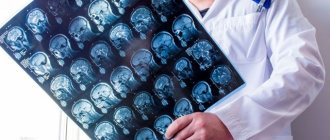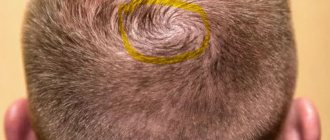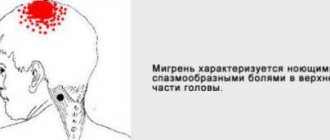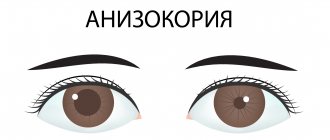Features of treatment
Symptoms such as cloudiness, dizziness, heaviness, a feeling as if the head is in a fog, can accompany a person constantly or appear several times a week.
This condition does not always mean that a person has any disease. Often these signs arise due to the influence of certain factors: changes in weather conditions, excessive physical exertion, lack of sleep, mental work, etc.
The main feature of the brain fog symptom is its sudden appearance. So, a person who felt good a minute ago, almost in an instant feels discomfort, fogginess, dizziness, blurred vision, dullness of consciousness.
The problem is that these symptoms can appear in the workplace or while performing an important task. Due to this, a person is deprived of the opportunity to carry out usual activities.
Brain fog is often accompanied by various symptoms:
- increased or decreased blood pressure;
- drowsiness during the day and sleep disturbance at night;
- weakness;
- headache;
- strong heartbeat;
- excessive sweating, etc.
Often this picture is accompanied by a feeling of unreasonable fear, a feeling of lack of air, and the appearance of a ringing in the head. There are many reasons for this condition.
If a patient constantly complains that he has a heavy head, the causes of discomfort are vegetative-vascular dystonia, osteochondrosis or another disease, it is best to entrust treatment to a specialist. The following therapeutic measures are carried out:
- Cerebral circulation is normalized with the help of nootropic and vasotropic drugs.
- Blood circulation is improved with the help of physiotherapy: electropheresis, phonopharesis, and magnetic therapy are used.
- Muscle spasms in cervical osteochondrosis are relieved through massage and manual therapy.
- Nervous tension is eliminated - with the help of tranquilizers, sedatives, sedatives.
- To relieve muscle spasms, muscle relaxants are taken, non-steroidal anti-inflammatory gels and ointments are applied topically.
- Allergic reactions are relieved with antihistamines.
If the cause of discomfort is the growth of a tumor, surgical intervention may be required.
In case of dysfunction of the cardiovascular system, it is necessary to strengthen blood vessels and normalize blood pressure. If the discomfort is due to a cold, the patient’s condition will return to normal after recovery.
Regular use of painkillers is required only if the heaviness in the skull is accompanied by a headache. It is advisable not to rely only on medications, but also to change eating habits and give preference to natural products. Spicy, salty, sour foods can increase discomfort, as can caffeinated drinks and chocolate.
Do you want the heaviness in your head to go away? Play sports, preferably swimming. It helps not only to get a feasible load on all muscle groups, but also to relieve accumulated negative emotions, “wash away” stress and a depressive mood. Walking in the fresh air, good sleep and the absence of nervous overload will help avoid unpleasant sensations.
There are several types of manifestations of brain fog. They are classified based on the primary causes.
Dizziness, cloudiness, heaviness can accompany people constantly or appear periodically. If your head is in a fog, this will not always indicate the development of some kind of disease. Very often, such a symptom is observed due to the influence of certain factors, for example, excessive physical exertion, changes in weather conditions, mental work, lack of sleep and much more.
The main feature of the symptom, when the head is in a fog, is its unexpected appearance. For example, if a person felt very good a minute ago, then almost in an instant he begins to experience discomfort, dizziness, fogginess, dullness of consciousness and blurred vision.
The whole problem with feeling like your head is in a fog is that the symptom can manifest itself while performing some important task or at the workplace. For this reason, the patient is deprived of the opportunity to carry out his usual activities. Dizziness and foggy head may be accompanied by other symptoms, for example:
- Low or high blood pressure.
- Weakness.
- Drowsiness during the day and sleep disturbances at night.
- Headache.
- Palpitations.
- Excessive sweating.
Quite often, such a picture is accompanied by unreasonable fear, a feeling of lack of air, and also the formation of ringing in the head. There are many different causes of brain fog. A list of them will be described below.
Features of manifestation
Symptoms such as cloudiness, dizziness, heaviness, a feeling as if the head is in a fog, can accompany a person constantly or appear several times a week.
This condition does not always mean that a person has any disease. Often these signs arise due to the influence of certain factors: changes in weather conditions, excessive physical exertion, lack of sleep, mental work, etc.
The main feature of the brain fog symptom is its sudden appearance. So, a person who felt good a minute ago, almost in an instant feels discomfort, fogginess, dizziness, blurred vision, dullness of consciousness.
The problem is that these symptoms can appear in the workplace or while performing an important task. Due to this, a person is deprived of the opportunity to carry out usual activities.
Brain fog is often accompanied by various symptoms:
- increased or decreased blood pressure;
- drowsiness during the day and sleep disturbance at night;
- weakness;
- headache;
- strong heartbeat;
- excessive sweating, etc.
Often this picture is accompanied by a feeling of unreasonable fear, a feeling of lack of air, and the appearance of a ringing in the head. There are many reasons for this condition.
Etiopathogenesis
The brain functions like a constantly running computer. When exposed to discomfort, he will begin to limit some of his actions. One of them is a sense of consciousness, conscious presence. Lack of oxygen, nutrients in the brain, accumulation of metabolic waste, and toxins are factors that lead to fainting, blurred vision, and a foggy state.
Treatment of astheno-neurotic syndrome
If there is no clarity in the head, then this may indicate astheno-neurotic syndrome. This pathology, in addition to constant fog in the head, is accompanied by other symptoms:
- Problems falling asleep.
- Superficial sleep.
- Suspiciousness, irritability, hot temper.
- Fast fatiguability.
- Unreasonable anxiety.
- Daytime sleepiness.
- Decreased ability to work.
- Feeling of a lump in the throat.
- Memory problems.
- Stiffness of movements.
- Dizziness.
- Constrictive headaches.
- Tremor of the limbs.
In most cases, this syndrome affects people who are mentally stressed. In addition, this pathology often affects those who have an unstable psyche.
The main causes of astheno-neurotic syndrome are prolonged stress, prolonged nervous tension, anxiety, chronic lack of sleep, and overwork. In addition, pathology can occur in people who have the following diseases and ailments:
- Various chronic diseases.
- Hypertension.
- Vegetovascular dystonia.
- Poisoning.
- Acute viral infection.
- Avitaminosis.
- Head injuries.
- Bad habits.
The syndrome develops over time. At the initial stage of its development, a person feels weak in the morning, restlessness and mild irritability. After this, in the absence of medical intervention, other symptoms appear in the form of sleep disturbances, loss of strength, memory problems, heaviness in the head, a feeling of futility, the appearance of fog in the eyes, as well as decreased ability to work.
After this, pain in the heart sets in, excessive irritability gives way to weakness, appetite disappears, mood and libido decrease, apathy appears, and the patient constantly thinks about the state of his health. As a rule, such people develop a fear of death. Ignoring such symptoms can lead to mental illness.
This disease can be cured using psychotherapeutic methods. However, provoking factors should also be excluded at the initial stage of therapy: lack of sleep, stress, mental stress and excessive physical activity. If you do not reduce the influence of these factors, then drug treatment and psychotherapy will not have the desired effect and will not eliminate the unpleasant symptom.
Medicines are used in severe cases. The most effective are sleeping pills, restoratives, antipsychotics, antidepressants and tranquilizers.
How to Keep Your Mind Clear: 15 Great Ways
Information overload, all kinds of disasters, an unstable political situation and a huge amount of stress are just a few of the characteristics of modern life. It is no wonder that people so early begin to suffer from forgetfulness, inhibition of thinking, negative changes in cognitive abilities, and in some cases even clouding of reason and dementia. That is why you need to know what to do to keep your mind clear and active throughout your life. We'll talk about this further - we bring to your attention 15 great ways to maintain mental clarity.
Lead a healthy lifestyle
Despite the banality of this recommendation, it is extremely important, because in order not to cloud your mind in the future, you need to engage in prevention today. There are no secrets here - just avoid smoking, alcohol abuse and other bad habits, do exercises, monitor your blood sugar levels and pressure, undergo a medical examination every year, be selective about what you eat, and try to get more out of life positive emotions.
Exercise
Physical activity is essential to keep your body in great shape. However, they also have another benefit - when a person makes intense movements, blood circulation improves not only in the muscles, but also in the brain, which improves his performance. Practices such as yoga, tensegrity, and qigong are also extremely useful for the general condition of the body. But do not forget that body training should be accompanied by thinking training (by the way, we have a wonderful course for this) - comprehensive harmonious development will allow your mind to always be clear.
Drink water
You can learn a lot of interesting things about the benefits of water from this article, but we will still remind you that drinking water in the morning is much healthier than drinking coffee. According to the results of multiple studies, if you drink a glass immediately after waking up, your state of alertness will accompany you much longer. In addition, if you drink water on an empty stomach, the functioning of the gastrointestinal tract improves, blood vessels are cleansed and toxins are removed from the body. This means that much fewer harmful substances will enter the brain along with the blood.
Breathe fresh air
To keep your brain active and your mind clear and sharp, you need to spend more time in the fresh air. But in no case should you limit yourself to five minutes during your lunch break - this is no walk. To have an effect and benefit, you need to take at least two half-hour walks a day. And it’s even better to go out of town or into nature at least once every two weeks, where the air is much cleaner than in the city. In addition, this is a great way to relax, unwind, take your mind off worries and normalize your emotional and mental state.
Get enough sleep
Another truism is that in order to feel good for as long as possible, you should always get enough sleep. The fact is that during sleep, the human body produces a special hormone - melatonin, which promotes rest and prevents premature aging. In general, it is considered the strongest natural antioxidant and immunomodulator, because it fights free radicals - harmful molecules that destroy tissues, cells and genes and cause serious illnesses, such as Alzheimer's disease.
Use all your senses
Using all five senses is not only a way to live fully, but also an effective method of preventing many aging diseases and disorders. Try to perceive more colors, listen to more sounds, recognize more smells, feel more tastes and touch more objects in the world around you. To do this, you just need to concentrate on what you are doing at the moment and focus on the phenomena that accompany your life.
Look for the positive
Many experts, including psychologists, recommend developing positive thinking and optimism. It is known for certain that in calm conditions, when a person is comfortable and there is nowhere to rush, he performs any work much easier and more efficiently. However, such conditions in our lives are very rare, and therefore we need to be able to see the positive sides in everything, impetuses for development and life lessons that make up experience and wisdom. In addition, all this will have a positive effect on your life results.
Solve puzzles
Such wonderful things as word games and puzzles, Sudoku, crosswords, scanwords, logic games and puzzles are not a way to while away leisure time, but real brain training (this also, in principle, includes all sorts of courses on the development of thinking, such as this ). Firstly, solving them prevents premature aging of brain cells, and secondly, helps restore thinking abilities if they have been damaged. So don’t think that spending an hour “racking your brains” is a waste of time.
Play chess
Chess has long been recognized as an ideal brain workout. By playing them, a person develops strategic thinking, creativity, memory and the ability to improvise. Note that the elasticity of the brain depends on the behavior of special neural processes called dendrites - they are responsible for transmitting nerve impulses to this organ. Every time a person plays chess, he literally modifies his brain, because a huge number of these same dendrites are involved in this process. It is likely that in the near future, doctors will prescribe not only diet and exercise, but also playing chess to maintain mental clarity.
Watch TV carefully
Here, however, we mean watching TV carefully not in the literal sense of the word, but in the sense of selectively, i.e. you need to pay attention to what you are looking at. We are all already familiar with the fact that television is a real “zombie box” that clogs up the memory and dulls the brain. But this is only true when people watch anything, indiscriminately and for long hours. If you choose programs wisely, look for educational and developmental programs, the brain will work efficiently, and at the same time new knowledge will accumulate and intelligence will develop.
Use the Internet
Everyone knows that the Internet is a real storehouse of information on absolutely any topic. It is only important to be able to use it correctly and purposefully. For this reason, you need to search the Internet for necessary and interesting data, and not stupidly watch “videos” and go back and forth with your online interlocutors. But the most curious thing is that searching the World Wide Web for the necessary information loads a person’s brain more than reading books, and therefore trains it very well.
Eat right
You've probably heard that the brain's “food” is glucose. However, one should not assume that in order to train him and develop his thinking, he needs to eat tons of sweets. On the contrary, the most correct and sure way to good memory and a clear mind for many years is a regular healthy diet, where there are fresh vegetables and fruits, herbs, walnuts, foods containing protein, fiber and many other useful substances. However, you can read in detail about healthy nutrition, as well as alternative nutrition concepts, here and here.
Use herbs
The secrets of longevity and mental clarity should be sought in addition to official, so-called traditional medicine, and in folk medicine. There is simply an incredible amount of herbal remedies that improve cognitive abilities, increase stress resistance, improve concentration and develop intelligence. Moreover, they are all completely harmless and even beneficial for the body as a whole. Great examples include ginseng, ginkgo, rosemary, immortelle, mint, and others.
Learn new things
The brain and mind, like muscles, if you do not give them proper attention and do not load them, over time they can “sag” and turn into a “piece of meat.” Even the most powerful intellect, left inactive for a long time, can become dull. To avoid such a turn of events, provide yourself with a regular flow of new information - gain new knowledge, master unusual skills, etc. Just some 15 minutes of practice every day will protect your mind from degradation worse than the most powerful drugs and drugs (this is why we advise you to develop your thinking).
Meditate
It sounds quite unusual, but meditation can prevent negative age-related changes in the brain. If you do this practice regularly, the greatest positive impact will be on the structures that interact with information processing and attention. Even MRI studies have shown that meditation changes the physical structure of the human brain, thereby counteracting the breakdown of neural connections.
These are some simple ways to keep your mind clear, friends. Use them to your health, and at any age you will always think well, remember everything and adequately perceive yourself and the wonderful world around you!
We also recommend reading:
- Storytelling
- Maintaining a clear mind and intelligence in old age
- Brain Foods
- 10 Unusual Ways to Boost Your Cognitive Abilities
- The main mistakes that beginners make in sports
- Stress while studying: causes and prevention
- What harms our brain?
- Intermittent fasting
- How to Increase Brain Productivity
- Brain digest
- Food for the mind: foods that improve concentration and brain function
Key words:1Cognitive science
What Causes Brain Fog?
This condition sometimes occurs in healthy people as a result of fear, shock, prolonged standing, or staying in one position. But with a cloudy head, the causes can also be represented by more serious diseases. If such problems occur frequently (more than once a month), consult a doctor.
Causes of brain fog in healthy people:
- Prolonged standing, which can also cause cramps. These symptoms may also indicate chronic venous insufficiency.
- Rapid changes in body position, for example when standing up from a sitting position. We are talking about orthostatic hypotension, which is a drop in blood pressure with a rapid change in posture. This condition can be supported by certain medications.
- Prolonged tilting of the head (for example, when looking at the sky), causing a decrease in blood flow to the head.
- Prolonged stay in a room with “heavy” air.
- Fright.
- Emotional excitement, nervousness.
- Swallowing.
- Defecation.
- Urination.
- Shaving or tying a tie.
- Phobias, looking at unpleasant things (blood, needles, arachnophobia, fear of heights, other phobias).
- Emotional trauma.
- Depression.
- Exhaustion.
- Dehydration.
- Intoxication.
- Sudden or severe pain.
- Severe cough, sneezing.
- Laughter.
- Poor or insufficient sleep.
- Playing sports in high ambient temperatures.
- Hormonal changes.
- Pregnancy (increased cardiac output).
For brain fog, causes may include medications. These include medications for hypertension, allergies, depression, and nausea.
Tablets that may make your head feel cloudy:
- opioid analgesics (at the beginning of use, as a rule, symptoms decrease over time);
- parasympathomimetics (by lowering blood pressure);
- sympatholytics used to reduce blood pressure, tachycardia (blocking norepinephrine receptors);
- antidepressants;
- combinations of antidepressants or their use with opioids - can lead to thought disorders, serotonin syndrome (CNS irritation, tremor, muscle twitching, impaired consciousness, hypertension, rapid heartbeat);
- diuretics.
Why does brain fog occur?
Basically we are talking about the body’s protective reaction to a condition in which the required amount of oxygen does not reach the brain. Due to a slower heart rate and lower blood pressure, the return of blood to the heart and the flow of oxygenated blood to the brain slow down. This is immediately detected by the cells, the brain tries to help the heart, momentarily turning off consciousness.
In a horizontal position, the supply of the required amount of blood to the brain improves, so if you feel dizzy, weak, or have blurred vision, it is recommended to lie down.
Treatment of vegetative-vascular dystonia
This disease is the most common reason for lack of clarity in the head, fog. However, you should pay attention to the fact that vascular dystonia is not a separate disease, but a combination of many symptoms that arise due to disruptions in the functioning of the human autonomic nervous system, which is responsible for the functioning of internal organs and systems. The disease is accompanied by the following symptoms:
- Dirty and head, as if in a fog.
- Dizziness.
- Anxiety.
- Headache.
- Stomach pain, nausea.
- Unfounded fears.
- Lack of air.
- Tachycardia.
- Unsteadiness when walking.
- Tremor of the limbs.
- Insomnia and shallow sleep.
- Irritability.
- Changes in blood pressure.
- Floaters before the eyes.
- Severe ringing in the ears.
The list of symptoms of vegetative-vascular dystonia can be endless. In addition to the fact that a person develops a fog in the head, there is no clarity of thinking with this illness, it should be noted that panic attacks appear. If the patient does not take any measures, does not strive for changes in lifestyle, or does not seek help from a doctor, this can provoke the emergence of various fears and phobias.
So, we figured out that the head is in a fog - this can be a symptom of vegetative-vascular dystonia. To eliminate it, you need to seek help from a doctor. To relieve symptoms, various medications are used: sleeping pills, sedatives, drugs for dizziness, as well as medications to normalize blood pressure.
Also very effective in the fight against this disease are physical procedures, massage, and acupuncture.
Six ways to get rid of brain fog
Brain fog is a term that describes symptoms that interfere with the ability to think clearly. Its frequent manifestations are confusion in thoughts, forgetfulness, inconsistent thought processes, and inability to concentrate. Basically, it's any situation where you can't think straight.
Causes of brain fog: lifestyle, medications you take, or various diseases. Our article concerns the first reason. Below, you'll find six ways to clear your brain fog so you can think clearly and effectively deal with the challenges that arise every day.
1
Eat brain-healthy foods
Brain fog is often a sign that there is inflammation in your brain. One of its main culprits is food. There are foods that fire up the brain, but there are also foods that have an anti-inflammatory effect.
According to a Harvard Medical School study, the following foods have a negative effect on the brain:
- Refined carbohydrates - such as white bread and pastries.
- Fried foods - such as French fries.
- Carbonated drinks are primarily sweetened with sugar.
- Processed meats - hot dogs, sausage, deli meats.
- Margarine and lard.
Here are some of the anti-inflammatory foods you should try:
- Tomatoes.
- Olive oil.
- Green leafy vegetables - such as spinach and kale.
- Nuts - almonds and walnuts.
- Fatty fish - salmon, mackerel, tuna, sardines.
- Berries and fruits - strawberries, blueberries, cherries, oranges.
Psychotherapist Mike Dow also points out the need to consume foods rich in omega-3. The best choice is trout. But this fish is quite expensive, and the already mentioned almonds and walnuts, as well as flaxseeds, can be substitutes.
2
Clear the Fog with Exercise
A 2012 study involved 4,289 men and women with an average age of about 50. It turned out that regardless of body weight and age, those who exercised more than 2.5 hours a week reduced a marker of brain inflammation by 12%.
This is another reason to start doing at least morning exercises.
3
Get enough sleep
Dr. Lawrence Epstein, a professor at Harvard Medical School, explains that lack of sleep negatively affects thinking. 7-8 hours of sleep is enough to prevent negative consequences and restore mental clarity: “You can really compensate for lost sleep and restore focus and clarity. You can get rid of brain fog within a week. But start now; The longer you sleep poorly, the longer it will take to fully recover.”
4
Reduce stress
If you are constantly stressed, your body continually produces the “stress hormone” cortisol. In large quantities, it can harm the brain. If you're chronically stressed, the hippocampus, the part of the brain's limbic system responsible for translating short-term memories into long-term ones, is actually marinated in cortisol.
The result is cognitive impairment and “brain fog.” And in the long term, such negative effects can lead to the early development of dementia and Alzheimer's disease.
To cure brain fog and prevent future brain-related problems, you must reduce your stress levels. There are many ways to do this:
- Simplify: tasks, responsibilities, number of things.
- Distribution of priorities.
- Rest during the day.
- Meditation.
We have separate materials about this on our website. Let's talk about the last method in more detail right now.
5
Meditate daily
Psychotherapist Mike Dow, author of The Brain Fog Fix: Reclaim Your Focus, Memory, and Joy in Just 3 Weeks, points out that one of the best ways to get rid of brain fog is to meditate for 12 minutes a day. He explains that brain scans have shown that meditating for this length of time will help strengthen the prefrontal cortex, which will allow you to think more clearly.
6
Drink more water
One cause of brain fog is dehydration. Since most of the brain is made up of water, even slight dehydration can negatively impact cognitive function.
As a final note, if you suffer from chronic brain fog, it may be due to an underlying medical condition. In this case, you should seek help from a doctor.
We wish you good luck!
We also recommend reading:
- Storytelling
- Food for the mind: foods that improve concentration and brain function
- 7 simple ways to preserve your brain as you age
- Brain Foods
- Things that make us stupid
- What harms our brain?
- Brain digest
- Separate food
- Ketogenic diet: a short educational program
- 7 effective “cures” for chronic fatigue
- 10 Unusual Ways to Boost Your Cognitive Abilities
Key words:1Cognitive science
Lack of oxygen
If the human brain begins to lack oxygen, this can trigger a feeling of brain fog. For this reason, hypoxia develops due to compression of the vessels through which the blood must carry oxygen, as well as all the necessary substances to nourish the organ. In addition to fogginess, a person experiences other symptoms:
- Weakness.
- Dizziness.
- Decreased ability to work.
- Heaviness in the head.
- Bad memory.
- Unclear consciousness.
- Slow reaction.
- Problems with information perception.
- Fatigue, severe weakness.
Diagnostics
A detailed medical history is important for a correct diagnosis. It must contain an accurate description of the event, prodromes, symptoms preceding it and other information. It is also important to find out how often brain fog occurs and whether individual cases have common features.
The history should include the following information:
- type of imbalance, improving and worsening factors;
- provocative moments, the onset of instability (acute, slow);
- duration of progression (minutes, days, months, years);
- course (continuous, progressive, episodic); for episodic manifestations - duration of the attack;
- accompanying symptoms (vegetative, auditory, neurological, others);
- history of somatic and psychiatric comorbidities, medications used.
From the anamnesis and clinical examination we can distinguish:
- signs indicating damage to the vestibular system;
- ataxia as a result of damage to the cerebellum, proprioceptive pathways, and vestibular system;
- disturbances in stability due to damage to the basal ganglia, frontal cortex;
- nonspecific or presyncopic states of imbalance caused by cardiovascular, metabolic, and autonomic causes.
The doctor may also ask about medications you take regularly or occasionally.
Family history includes information about the presence of sudden deaths in the family, especially at a younger age. Cardiac activity is also monitored using ECG and blood pressure is monitored.
If a person experiences a feeling of foggy consciousness, often has a unclear head, or headaches, it is necessary to visit a neurologist. It is this specialist who, after examining the patient and listening to his complaints, suggests undergoing additional examination or refers him to a specialist. Possible diagnostic methods:
- Ultrasound of the vessels of the head and neck.
- Angiography of cerebral vessels.
- CT and MRI of the head, cervical spine.
If the development of astheno-neurasthenic syndrome is suspected, the person will be referred to see a psychotherapist. If circulatory disorders are caused by neurasthenia, the patient may additionally be advised to undergo rheoencephalography.
If fogginess in the head appears constantly, then this is a reason to urgently consult a doctor. Therapists, neurologists, and psychotherapists deal with this issue.
Before prescribing treatment, the doctor must interview the patient and find out what additional symptoms he has, as well as conduct a diagnosis. Here is a list of mandatory tests needed to find out why fuzzy head syndrome occurs:
- General analysis of urine and blood. Exclude the presence of inflammatory reactions and infectious processes.
- Ultrasound of blood vessels in the cervical spine.
- CT or MRI of the spine and brain. An MRI and CT scan will allow you to exclude malignant processes, determine the condition of blood vessels, identify the presence of chronic diseases of the nervous system, etc.
- Angiography of cerebral vessels.
The patient may also need to consult other specialists.
Twilight consciousness disorder
Dysphoric twilight disorder of consciousness is characterized by external orderliness of actions. The patient looks detached from what is happening, immersed in himself. The facial expression is often angry or sullen, sometimes wary. Establishing contact is impossible - the patient does not react to speech addressed to him and either remains silent or utters stereotypical remarks that are in no way related to the words of the interlocutor. In some cases, patients with twilight disorder of consciousness have limited recognition of familiar surroundings and people they know, but they lose the ability to critically evaluate their own behavior and act inappropriately to the situation. Fleeting fragmentary hallucinations may occur: disturbances in the perception of time, disturbances in the body diagram, a feeling of a double, a feeling of death and birth, etc. As hallucinations progress, aggression and auto-aggression are possible.
Hallucinatory twilight disorder of consciousness is accompanied by the formation of illusions, which are subsequently joined by auditory and visual hallucinations, usually of a frightening nature. Productive contact is impossible - patients with twilight disorder of consciousness are completely isolated from reality, do not perceive speech addressed to them, pronounce abrupt phrases or individual words, sometimes hum or shout out something inarticulate. Hallucinatory experiences provoke aggressive behavior. There are frequent outbursts of aggression, during which patients with twilight disorder of consciousness commit acts of terrifying force and cruelty: they inflict multiple wounds on other people using sharp objects, severely beat and beat to death with their bare hands, etc.
Delusional twilight disorder of consciousness is accompanied by the development of delusions of persecution. It seems to the patient that someone is trying to harm him, has intentions and commits actions that should entail his suffering or death. The behavior is outwardly orderly, from the side of the patient it looks focused and purposeful, but productive contact, as in previous cases, is impossible. A patient with a twilight disorder of consciousness often commits antisocial acts determined by the content of delusions and aimed at “protecting himself from a threat.” After normalization of the condition, many patients retain memories of their own experiences.
Outpatient automatisms are characterized by the performance of automatic actions. The patient can get on a tram, travel a few stops, and then suddenly find himself in an unfamiliar place, he can get dressed, close the door, leave the house and come to his senses on the street, not understanding how he got there. From the outside, patients with twilight disorder of consciousness look thoughtful, somewhat confused, immersed in their thoughts. Delusions, hallucinations and dysphoria are absent. After exiting this state, complete amnesia for events during the illness occurs. A similar clinical picture is observed during trances, but in this case the disorder of consciousness is longer lasting and, as a rule, is accompanied by moving long distances.
Twilight disorders of consciousness in hysterical psychoses are characterized by a lesser degree of detachment from what is happening. Contact with the patient is partially preserved; from the patient’s behavior and remarks one can understand what circumstances provoked the development of psychosis. After normalization of the condition, partial memories of events and experiences during the illness are retained. When immersed in hypnotic sleep, memories come to life, the picture becomes more coherent and complete.
Osteochondrosis of the cervical spine
Patients suffering from osteochondrosis of the cervical spine are faced with various manifestations of the disease. These include pain radiating to the arm and occipital region, and severe headaches. But perhaps one of the most traumatic symptoms is dizziness.
Medicine calls common dizziness in cervical osteochondrosis cochleovestibular symptoms. The main cause of dizziness is insufficient cerebral blood supply due to compression of the vertebral artery.
The vertebral artery supplies blood to the cerebellum, hypothalamus, inner ear and brain stem structures. It arises from the subclavian artery and runs in a canal formed by the transverse processes of the cervical vertebrae.
Why does dizziness develop? Initially, due to degenerative processes or injuries, the working structure of a segment of the spinal system in the cervical region is disrupted. Fractures, dislocations and subluxations of the joints in the cervical spine are possible, leading to displacement of the vertebrae and changes in the lumen of the canal formed by the openings of the vertebral processes.
Compression of the artery leads to a decrease in blood flow and, as a result, to oxygen starvation of the tissues of the brain. All of the above leads to the manifestation of symptoms of SPA (symptoms of the vertebral artery) - dizziness, severe throbbing headache (sharp, burning, especially intense in the back of the head and temples), visual disturbances (darkening in the eyes, a feeling of sand, spots in front of the eyes, sparks).
Dizziness is observed in varying degrees, from slight swaying, with a slight disturbance of cerebral circulation, to so-called drop attacks, when a person falls when turning his head sharply, while consciousness remains intact. With severe brain disorders, there may be nausea, vomiting, and tinnitus.
At the moment, treatment of vertebral artery syndrome is a difficult task to solve, as evidenced by the many different treatment methods from different clinics and the lack of a single generally accepted treatment regimen. Here are the main directions in the treatment of vertebral artery syndrome:
- Anti-inflammatory and decongestant treatment.
- The use of drugs that normalize blood circulation in the brain. The use of neuroprotectors and metabolic therapy to protect brain nerve cells under conditions of oxygen starvation.
- In case of severe impairment of cerebral circulation, surgical treatment of cervical osteochondrosis is used to eliminate the causes of compression of the vertebral artery.
- Rehabilitation treatment, involving physical therapy, massage, acupuncture.
Severe headaches with cervical osteochondrosis are somewhat alleviated by painkillers, but this symptom can only be completely eliminated by eliminating osteochondrosis.
Cerebrovascular disorders
The brain is supplied with blood through four arteries - two carotid and two vertebral. A decrease in blood flow through these vessels due to any pathological changes disrupts the normal nutrition of the brain.
Insufficient supply of oxygen and nutrients for the normal functioning of the brain leads to headaches, dizziness (especially in older people and in the morning), a feeling of fog in the head, a feeling of heaviness in the head, noise in it, and increased blood pressure. Disturbances in the blood supply to the brain can also be manifested by general weakness, anxiety and even loss of consciousness, provoked by a certain position of the head in space.
As a rule, cerebrovascular insufficiency occurs due to:
- mechanical compression of the vertebral artery by displaced vertebrae, degeneratively altered intervertebral joints, intervertebral hernia, osteophytes, spasmodic muscle;
- narrowing of the lumen of the carotid arteries due to atherosclerosis;
- craniovertebral malformations (congenital anomalies in the structure of the area where the spinal column connects to the skull).
Problems in the cervical spine - osteochondrosis and its complications - can be indicated by discomfort in the spine when turning the head, pain, and in acute cases, limited mobility of the cervical spine.
A neurologist is involved in the diagnosis and treatment of these pathologies. You can quickly and carefully restore blood flow through the vertebral arteries by correcting the location of the spinal column structures using manual therapy or osteopathy.
Prevention
What can be done to prevent disturbances in the stability of the body, a “drunk” state? First of all, identify the trigger, try to avoid it.
- Get up slowly.
- Tell your doctor if you experience any discomfort during blood draws or other medical procedures. He can take certain measures to prevent it.
- Eat regularly and drink enough water.
What to do if you experience frequent headaches?
It is important to find out the seriousness of the cause of this condition. It can warn of heart rhythm disturbances, narrowing of the aortic valve, heart tumors and other diseases. If discomfort is caused by medications that lower blood pressure, this should be discussed with your doctor and the dosage of the medication adjusted. But it is often enough to increase fluid intake, avoid prolonged standing, and exposure to direct sunlight.
Do you always feel a little drunk or drugged? This condition makes it difficult to concentrate, perform usual work, and may be accompanied by recurring headaches. To get rid of discomfort, it is necessary to establish the cause of its occurrence and try to eliminate it.
As stated earlier, the causes of brain fog may not always be due to health problems. Thus, when there are disruptions in the hormonal system, fog in the head is almost always observed. During pregnancy, a woman is often accompanied by this condition, as well as irritability and forgetfulness. The same symptoms may occur during menopause.









